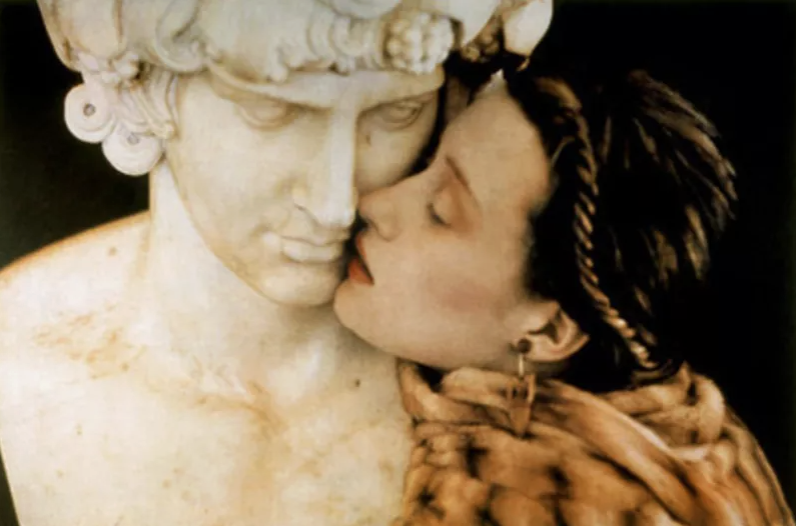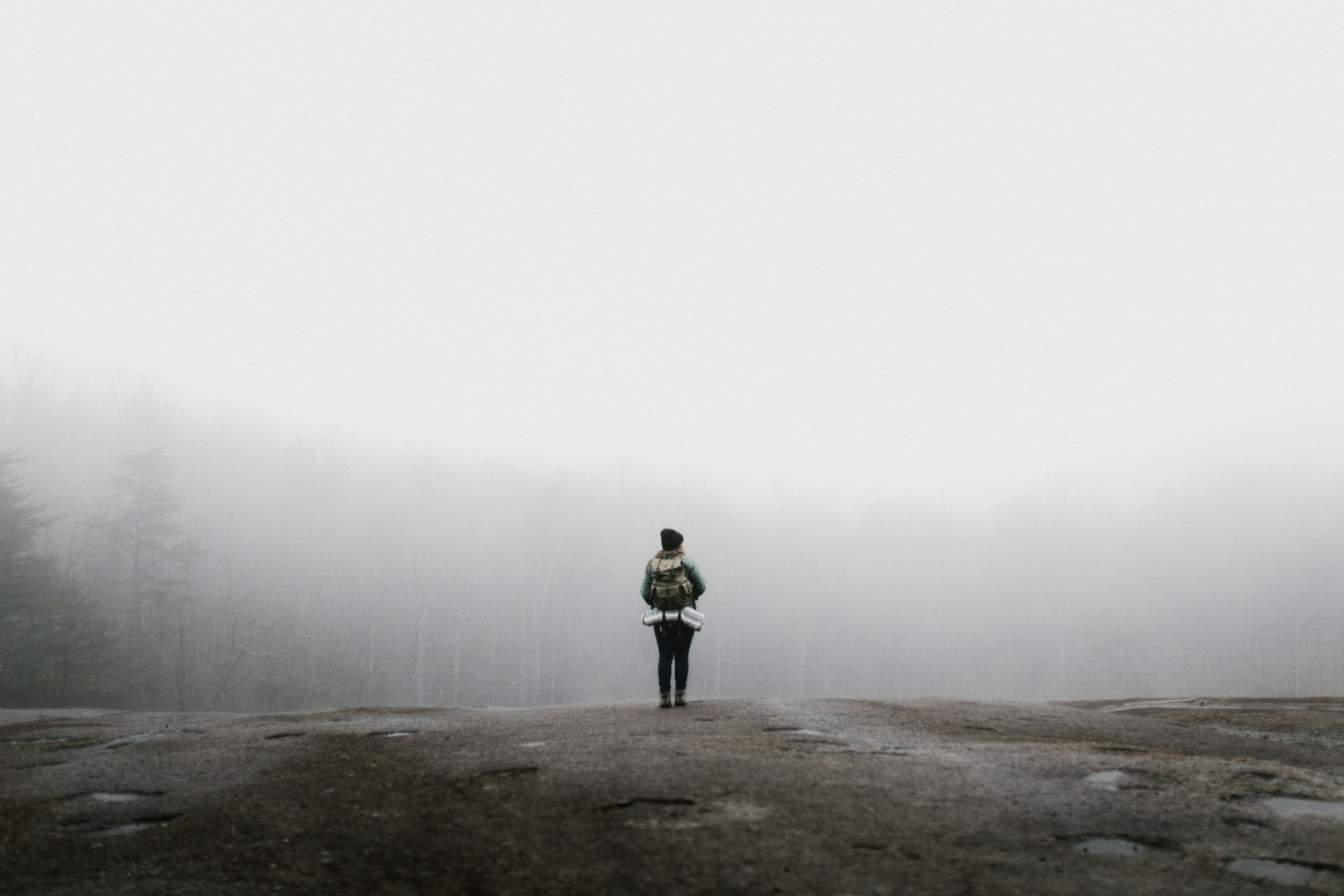Beyond the Creative Block: Healing the Trauma of the Loss of Self
The creative block can come as more than just a full stop in your creative journey. It can rob your entire identity. This article shares a case study of my client Sarah (name was changed for confidentiality) and how our work helped her heal from losing everything she thought she knew about herself.
Norman O’Flinn (2017), Untitled
Creative blocks, meta-anxiety, and defeat…
There are many reasons to fall out of love with life, and sometimes it can be incredibly difficult to get back on the horse, especially when all hope seems lost. A severe creative block can leave an immense impact on us. One that leaves us defeated but also out of touch with who we thought we were. My recent work with a writer who had first lost her ability to see her writing clearly, then went into a stage of meta-anxiety, that stopped her from sitting down at the desk entirely, made me think of how tremendous the loss can feel when we loose our ability to create. It’s more than losing a hobby, more than not knowing how to fill one’s time. It goes deeper, than having to try something new. It is after all the loss of our identity.
Yukimasa Ida (2024), Dance
The 20 seconds of bliss, when we complete our art work.
As artists or creatives we pride ourselves on our art. Usually not because we want to but because we got so used to defending our art to our peers, friends, and family members. The infinite amount of times we’ve been asked, when we will start to do something „real“ or „profound“, when we will make money, or when we will finally become a productive member of society forced us to give answers. We love what we do. We’d do it anyway, even if no-one would ever pay us. We can’t help but create. The words need to come out, the colors must be on that canvas, the dance forces our body to move. We thrive on what we do. We love it with every cell of our body. We tell them that the moment an idea comes knocking, there is a spark inside of us. We tell them about the fire that catches, the chaos it creates. We elaborate on the intimidation that comes with the first scare of having everything dismantled. The dance we take on when we sort out, what we just poured out of ourselves. There is nothing more beautiful than the state of flow, where all we can think about is what to do in the now. How to solve the problem, we’ve created. When we forget to eat, to go to the bathroom, to check our messages. Nothing ever lives up to the 20 seconds of bliss we experience, when we come to the end of our work. When we fall asleep in the soft sense of exhaustion after a successful mission. The adrenaline vanishes. The breath softens. We did it. Again. We are doing it. We are artists.
Mark Liam Smith (2025), Pleasure v. Pain
A creative block can feel like hitting a wall.
But behind each of these stories lies a harsh truth. One that can scare us to death. It’s the moment we can’t seem to solve that problem anymore. When the chaos doesn’t conclude in a beautiful piece of art, but rather throws piercing question marks right back at us. The feeling of constantly hitting a wall no matter how hard we try. And we try. We leave it be, return to it after some time, but still: nothing. The books on how to tackle creative blocks line up on our desks, and all the tricks that promise immediate relief just leave us empty. There is nothing wrong with feeling like this, they say. And it’s true. A phase of non creation is an inherent part of the creative block. It’s normal. It’s part of the game, what we signed up for. But why does it have to hurt so badly? Why this excruciating pain? Some of us have learned to fight through it. To grind our teeth, clinch our fists and weather the storm. And when we finally get over it - there is nothing sweeter in the world than knowing that nothing can hold us back. But what if we never do? What if this time, we really did lose our mojo for good?
rebeccaxthomas, madness
The writer’s block as a result of high expectations.
Not all creative blocks just heal with time and hard work. Some stick. And they have the ability to throw us off our orbit. Because when the drought stretches further and further we inevitably begin to wonder: have we lost our spirit for good? Are we doomed to live a life without our art? And how long can we go without a drop of water? My client Sarah* couldn’t finish a single work of writing for three years after she painfully had to give up on her last novel. The pressure of second-book syndrome made her crumble. After getting published, after having an editor, a publisher, and on top of that, the buyers of her book believing in her once, she felt forced to come up with something even better. Something that didn’t just live up to her reputation but even exceeded it.
Markus Klinko (2001), David Bowie Writers block
Creative burnout can lead to a visious cycle.
Three years ago a therapist diagnosed her with burnout, which led to Sarah leaving her job in an NGO. It’s hard to say what hit her first: depression or creative block. Although we might never find out where the vicious cycle started, we do know for sure that it is a self-perpetuating process. Not knowing how to proceed with our work can leave us frightened, which will block us even more. The fear turns into a meta-anxiety: The fear of the fear. So just the idea of sitting down at her desk, scared Sarah so much - there seemed to be no way for her to ever finish anything ever again. Sarah had to go through a dark time in which she couldn’t write, couldn’t sleep, could barely get out of bed. It was Netflix and Reels that kept her from going crazy, focused her spiraling mind, and were the only ways to quiet the never-ending rumination.
Luis Miguel Valdes (2012), Vicious Circle
A creative block can mean losing oneself.
When we started working together I knew we had to do some serious relationship work. Because at this point she wasn’t just tackling her battles with her art anymore but also with who she was at her core. Sarah had lost her sense of self. A sobering, humiliating and fairly scary loss. She had identified so much with being a writer that she couldn’t imagine being anything else. It was what had given her joy and purpose. And now she felt like she was just someone who had no point in being alive, who couldn’t experience pleasure, who was completely lost. The notion of her own insignificance grew with every day that went by when she couldn’t write anything of value. Nothing was ever good enough for her.
Family history can help you understand your creative struggles.
Looking at Sarah’s family history, which was marked by bullying at school and a painful divorce of her parents, who then struggled with money problems - we discovered that it was her mother who always believed most in her abilities - up to a point where it became too much for Sarah to handle. Her mother had always seen Sarah and her siblings as special, as people who would do extraordinary things in life. For the children she had given up her own art, had always put the family first, so they could make something of themselves that was supposed to give her back her purpose. Subconsciously Sarah inherited the idea that she had to thrive in writing, to make up for the efforts and sacrifices her mother had made. Her writing was proof that her mother’s life wasn’t wasted. What an incredibly unfair burden to carry.
Johannes Kahrs (2005), Therapy (bed)
Changing the medium can invite playfulness.
We started working with simple paintings. Sarah had painted before, nothing special, nothing that ever had to sum up to a successful career. But simply was a pleasurable hobby, which she had forgotten about years ago. The paintings didn’t come with the same pressure as the writing did. No editor was hovering over her shoulders, waiting for results. No publisher had paid her an advance. Nobody wanted anything in return for her playful little watercolor paintings.
They showed her fears, her anxiety, her loss. But also they showed that she was a survivor. The trauma of losing one’s sense of self was awful, but Sarah was still here, still making a difference, still leaving a mark. Instead of thinking she couldn’t do anything anymore, she saw, she embodied even, that she was indeed making art. The colors helped her express herself where her words had failed her. They allowed her to be again, to slowly and carefully enter a state of aimless play. The more professional our creative work becomes, the easier it is to get lost in the idea that we have to prove to the world that we can do it. But the world didn’t care about Sarah’s paintings, the world didn’t even know they were happening. In the safe space of art therapy, in the confidential realm of a client-therapist relationship she was allowed to become a little girl with zero responsibilities - at least for a little moment per week. Sarah made a long forgotten experience, one that was free from the burden of having to live up to someone else’s expectations, she so subconsciously identified with from early childhood on.
Art therapy can help you embody a new relationship with your art.
At the end of our process Sarah told me, how much her relationship with her writing was changing. After experiencing a several-year-long depressive episode, she was now ready to start a friendship with her writing again. It was a slow process of getting in touch with it, writing little bits and pieces of a story that had been waiting for her attention for months. She still didn’t like what she wrote, but she was able to go back to it, without the self-hatred, the rumination, the fear of being nothing. Sarah’s body had experienced that she was creative, talented, and strong. Something had changed in her approach. She was still skeptical, careful even - but she did know, that somewhere, sometime writing would be hers. Even if she would never got published again.
Heila Metzner (1986), The Passion of Rome
The teachings of the creative block can lead us to the essence of who we are.
A creative block teaches us how we approach our art. It is here to help us understand the pressure we are under, the source of our fears, the abilities we have to get through this. Often it’s hard to understand. But with the help of a professional, we have the ability to understand what it is that’s keeping us from doing the work we so deeply need to do. Of creating, of saying what needs to be said. And often the creative block is not a once-in-a-lifetime experience, but one that will knock on our doors every now and then. The better we listen, the more we know what lies behind it, the easier it will become to work through. The teachings are infinite. The learnings precious. And the feeling of getting back on our feet is better than selling our work for tons of money. It’s about reconnecting to yourself. Your work. The essence of who you are.














